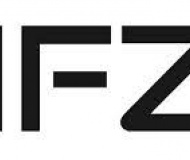How to Punish ICO Scammers: Modern Reality
News:
Date added: 20.09.2017Conducting ICO is still associated with a number of risks, one of which is fraud.
How to punish ICO scammers? Is it possible at all?
Important notice: Law&Trust no longer work in Russia. Transfer of operational control over Law&Trust in Russia to local management and the formation of the LegalCraft brand was started in 2022 and came into effect in October 2024.

Despite the fact that nowadays Russia, the United Kingdom, Singapore, the United States and other countries of the world have just started to determine the regulation of cryptocurrency, there are legitimate methods of influence or leverage in order to make it possible to punish ICO scammers and restore justice.
The sale of tokens without a precisely defined actual vendor/seller in the form of a legal entity leads to risks if the project fails, while law enforcement authorities keep a close eye on such sellers starting with the launch of carrying out ICO.
The sales of tokens are often carried out on behalf of natural persons in Russia, and they also have unclear and obscure model for the transfer of collected funds, which also leads to additional risks for investors.
Despite the fact that there is no definition of cryptocurrency in the legislation of the Russian Federation, it is possible to punish ICO scammers by qualifying their illegal actions in accordance with the provisions of the Criminal Code of the Russian Federation.
What provisions of the Criminal Code and Tax Code of the Russian Federation can be applied to assert the fact of ICO fraud?
Article 159 of the Criminal Code of the Russian Federation - Fraud
For example, if the company attracts investments for the implementation of the project and conducts ICO, while the collected funds are not transferred to the project, such actions can be qualified as fraud under Article 159 of the Criminal Code.
The founders of the company may be held liable if the initial lack of ability to fulfill their obligations is proven and if the persons concerned provided false information about the purposes of spending the funds raised and / or the project. Moreover, law enforcement bodies will consider and check business owners and third parties.
If the organizers raise funds and the project is not successful one for any reason, the absence of legal link between the participants accepting the investment and fulfilling the obligations to investors, as well as the lack of transitions of rights and obligations in a balanced form between the positions of organizers in ICO, will unambiguously allow to qualify these actions in accordance with the provisions of the Criminal Code of the Russian Federation, with the presence of direct and specific intent to fraudulent actions, which resulted in planned actions for failure to perform obligations (or obligation default) to misled investors.
Article 160 of the Criminal Code of the Russian Federation - Misappropriation or embezzlement
For example, if the company attracts investments in the process of ICO and transfers only a part of these funds to the project, and withdraws the other part by means of various mechanisms or sham contracts.
If these funds are not implemented in the project and used for the project, such actions can be qualified in accordance with the provisions of Article 160 of the Criminal Code (Misappropriation or embezzlement).
If the funds transferred to the project by the company are sufficiently invested in the project, it will be implemented and the obligations related to the return of investments by the company will be met, there will be no components of crime with elements of embezzlement or misappropriation.
Articles 185.3 and 185.6 of the Criminal Code of the Russian Federation - Manipulation of the Market and Illegal Use of Insider Information
Scammers can use the lack of regulation of the cryptomarket for manipulative purposes. Initially, they can artificially raise the rate and cause its fall upon having received superprofits.
At the same time, due to the lack of regulation of cryptoexchanges in the Russian Federation, and the absence of legitimate licensed cryptoexchanges in the territory of this jurisdiction, there are actually no risks of being held liable for manipulation. The manipulation of cryptocurrency can be also qualified in accordance with Article 159 of the Criminal Code (fraud).
ICO scammers can also be prosecuted according to:
- Articles 198 and 199 of the Criminal Code of the Russian Federation - Unfair or unconscientious organizers of ICO may be held liable for failing to pay taxes and / or fees.
- Article 174 of the Criminal Code of the Russian Federation and nota bene to this article - It is possible to prosecute unfair or unconscientious organizers of ICO or the company due to money laundering or acquisition of other property by criminal means.
- Article 199 of the Criminal Code of the Russian Federation - Failure to fulfill the duties of a tax agent.
The case when ICO is conducted by an individual
In the case of conducting ICO by the individual, he/she will be virtually imperceptible for the purposes of regulation,
But on the other hand:
-
A person carrying out ICO may incur administrative and criminal liability for conducting this activity without the formation of a legal entity. In the case of conducting ICO by several persons, it will be regarded as an organized group (5 years of imprisonment).
-
Limited number of the purchasers of tokens.
-
Relationship of the person who conducts ICO, with the purchaser of the token is based only on trust.
-
Actually concluded contracts will be effective (Article 23 of the Civil Code of the Russian Federation), while the permissible amount of the contract in oral form is up to 10,000 rubles under Article 161 of the Civil Code of the Russian Federation.
For more information, please contact the lawyers of Law & Trust International. Consultations are possible by phone, through chat or during personal conversation in the office of the company.

















